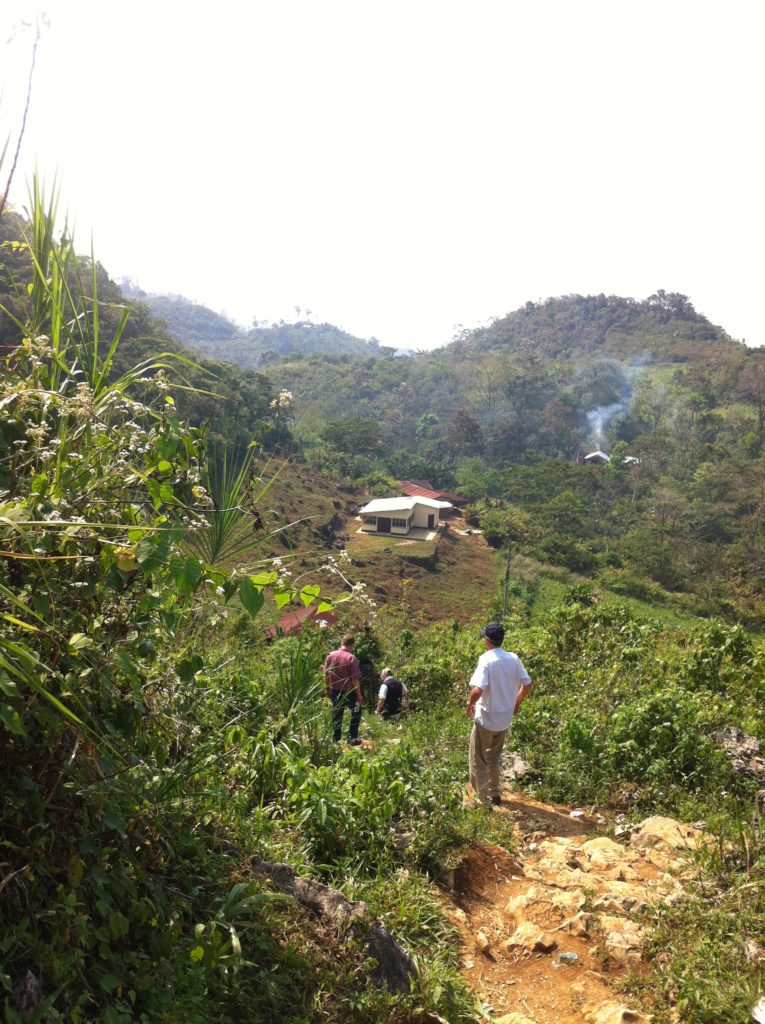November 10th, 2014 | By Eric Peterson
TulaSalud Coordinator
At TulaSalud Amado coordinates telemedicine applications. He works with health authorities, leaders, volunteers and especially community telemedicine facilitators...
Jesús Amado Soto Morales.
Amado Soto was born in Cobán and now resides in nearby Tactic. He was trained as a nurse and as a middle school teacher. Over the years he has had additional training in fire fighting, air rescue, survival, mountaineering, air rescue, emergency operations, safety and industrial security. Amado worked previously at the hospital La Tinta, at the regional hospital of Cobán and for an NGO in the PEC.
At TulaSalud Amado coordinates telemedicine applications. He works with health authorities, leaders, volunteers and especially community telemedicine facilitators, in order to streamline processes and address the primary goal of the project, which is timely response to health risks in the community, for pregnant women in particular. He provides the training and monitoring needed to improve the performance of community facilitators. He leads all projects that are focused in the community area.
 In October of 2012, Amado was called in the late evening by a community facilitator. The facilitator was with a pregnant woman who had very high blood pressure. Amado recommended that the patient be referred to the hospital immediately. The family thought the case could be resolved within the community, that they could buy a remedy from a a local supplier. Amado asked the facilitator to bring in the outpatient nurse responsible for the community. The nurse arrived and agreed that referral was necessary, but the nurse could not convince the family because the nurse did not speak the local language. The community facilitator then connected the cell phone to speakers, so Amado could talk to the family in their own language. They spoke to them for a half hour. It emerged that the family had no confidence in the hospital because of their negative experiences in the past. Amado assured the family that they could stay in touch with the patient via TulaSalud’s telemedicine system which was installed in the hospital. Amado would monitor the arrival of the patient and personally keep the family informed. This personal intervention by Amado—a human being who had gained their trust—was the assurance the family needed. The patient arrived at the Cobán hospital after midnight and was immediately transfered to the general hospital in Guatemala City because of the seriousness of the case. During the two weeks the patient was away in Guatemala City, the telemedecine link maintained communication between the doctors, the community facilitator and the patient's family. The patient returned to her community with followup instructions from the doctors, which were monitored in coordination with the community facilitator and the telemedicine unit as she recovered. The family and community leaders formally expressed their thanks to the telemedicine unit and all concerned.
In October of 2012, Amado was called in the late evening by a community facilitator. The facilitator was with a pregnant woman who had very high blood pressure. Amado recommended that the patient be referred to the hospital immediately. The family thought the case could be resolved within the community, that they could buy a remedy from a a local supplier. Amado asked the facilitator to bring in the outpatient nurse responsible for the community. The nurse arrived and agreed that referral was necessary, but the nurse could not convince the family because the nurse did not speak the local language. The community facilitator then connected the cell phone to speakers, so Amado could talk to the family in their own language. They spoke to them for a half hour. It emerged that the family had no confidence in the hospital because of their negative experiences in the past. Amado assured the family that they could stay in touch with the patient via TulaSalud’s telemedicine system which was installed in the hospital. Amado would monitor the arrival of the patient and personally keep the family informed. This personal intervention by Amado—a human being who had gained their trust—was the assurance the family needed. The patient arrived at the Cobán hospital after midnight and was immediately transfered to the general hospital in Guatemala City because of the seriousness of the case. During the two weeks the patient was away in Guatemala City, the telemedecine link maintained communication between the doctors, the community facilitator and the patient's family. The patient returned to her community with followup instructions from the doctors, which were monitored in coordination with the community facilitator and the telemedicine unit as she recovered. The family and community leaders formally expressed their thanks to the telemedicine unit and all concerned.
This experience shows how useful telemedicine can be in rural areas because it breaks down geographical barriers and maintains the human connection that is so important for instilling confidence in the system.
